Best Glasses Lens Brands: Top Picks for Clear Vision and Comfort
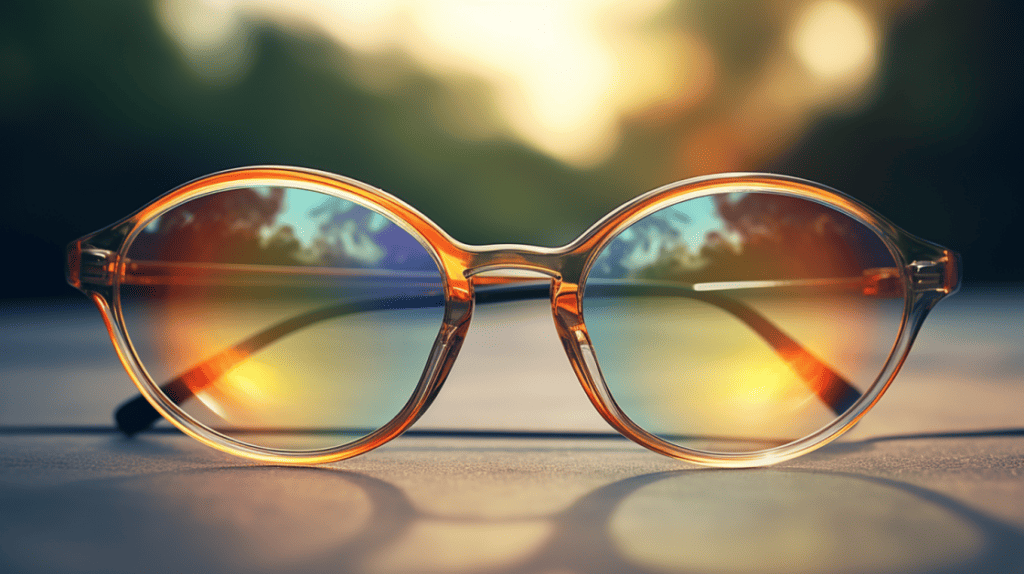
When it comes to choosing the right glasses, selecting the best lenses is just as important as finding the perfect frame. The type of lenses you choose can make a significant difference in your vision, comfort, and overall satisfaction with your glasses. With so many different types of eyeglass lenses available, it can be challenging to know which ones are the best fit for you.
Fortunately, there are several high-quality lens brands available that offer exceptional clarity, durability, and visual performance. Some of the most popular brands include Kodak, Essilor, and Hoya. Each of these brands offers a range of lens options, including single vision, bifocal, and progressive lenses, as well as various lens materials and coatings.
When selecting the best lens brand for your glasses, it’s essential to consider your specific needs and preferences. Whether you need lenses that reduce glare, protect against UV rays, or provide sharper vision at night, there’s a lens brand out there that can meet your needs.
By doing your research and consulting with an eye care professional, you can find the perfect lens brand and enjoy better vision and comfort with your glasses.
Key Takeaways
- Choosing the right lenses for your glasses is crucial for optimal vision and comfort.
- Popular lens brands like Kodak, Essilor, and Hoya offer a range of high-quality lens options to meet your needs.
- Consider your specific needs and preferences when selecting a lens brand, and consult with an eye care professional for guidance.
Understanding Eyeglass Lenses
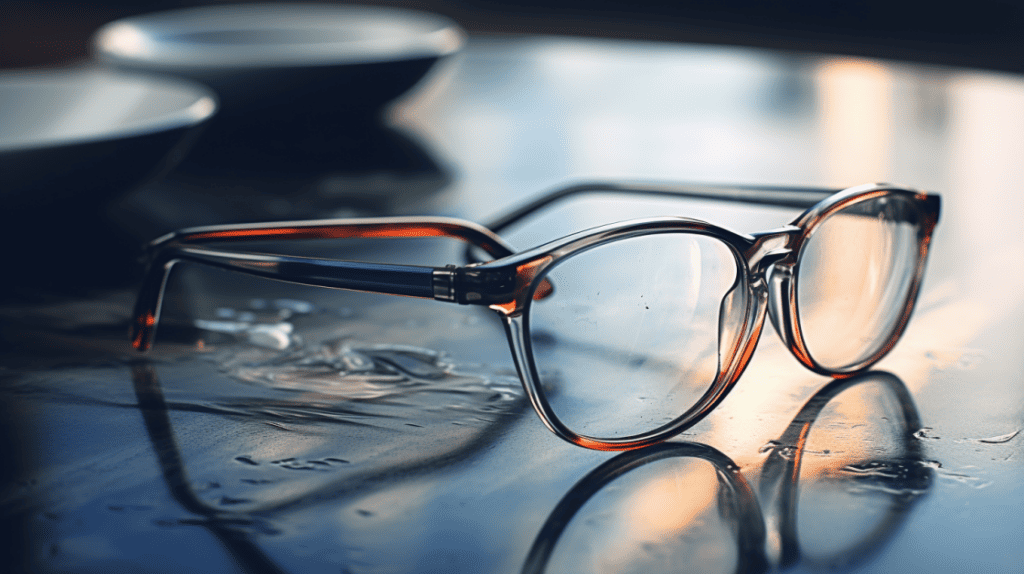
Choosing the right lenses for your eyeglasses is crucial for clear vision, comfort, and safety. With so many different types of lenses available, it can be overwhelming to decide which one is best for you. In this section, we will cover the basics of eyeglass lenses to help you make an informed decision.
Prescription Lenses
Prescription lenses are custom-made to correct your specific vision problem. They can correct nearsightedness (myopia), farsightedness (hyperopia), astigmatism, and presbyopia. Single vision lenses are used to correct one vision problem, while multifocal lenses, such as bifocals and progressive lenses, can correct multiple vision problems.
Lens Materials
Eyeglass lenses can be made from different materials, each with its own features and benefits. Some of the most common lens materials include:
- Glass: Glass lenses are scratch-resistant and provide excellent optics, but they are heavy and can break easily.
- Plastic: Plastic lenses are lightweight and impact-resistant, but they scratch easily.
- Polycarbonate: Polycarbonate lenses are lightweight, impact-resistant, and provide UV protection, making them a popular choice for children and sports eyewear.
- Trivex: Trivex lenses are similar to polycarbonate lenses but provide better optics and are more scratch-resistant.
Lens Coatings
Lens coatings can enhance the performance and durability of your eyeglass lenses. Some common coatings include:
- Anti-reflective coating: This coating reduces glare and improves the clarity of your vision.
- UV protection: This coating blocks harmful UV rays from the sun, protecting your eyes from damage.
- Anti-scratch coating: This coating makes your lenses more durable and resistant to scratches.
Tinted Lenses
Tinted lenses can improve your vision in different lighting conditions and can also be used for cosmetic purposes. Some common tints include:
- Gray: Gray tints reduce brightness and glare in bright sunlight.
- Brown: Brown tints enhance contrast and depth perception in low-light conditions.
- Yellow: Yellow tints improve contrast and depth perception in hazy or foggy conditions.
Sunglasses and Blue Light Lenses
Sunglasses and blue light lenses provide additional protection for your eyes. Sunglasses protect your eyes from harmful UV rays and reduce glare, while blue light lenses block blue light emitted by digital screens, reducing eye strain and fatigue.
In conclusion, understanding the basics of eyeglass lenses can help you make an informed decision when choosing the right lenses for your lifestyle and vision needs. Consult with your optician to determine the best lens materials, coatings, and tints for your eyewear.
Types of Lens Materials
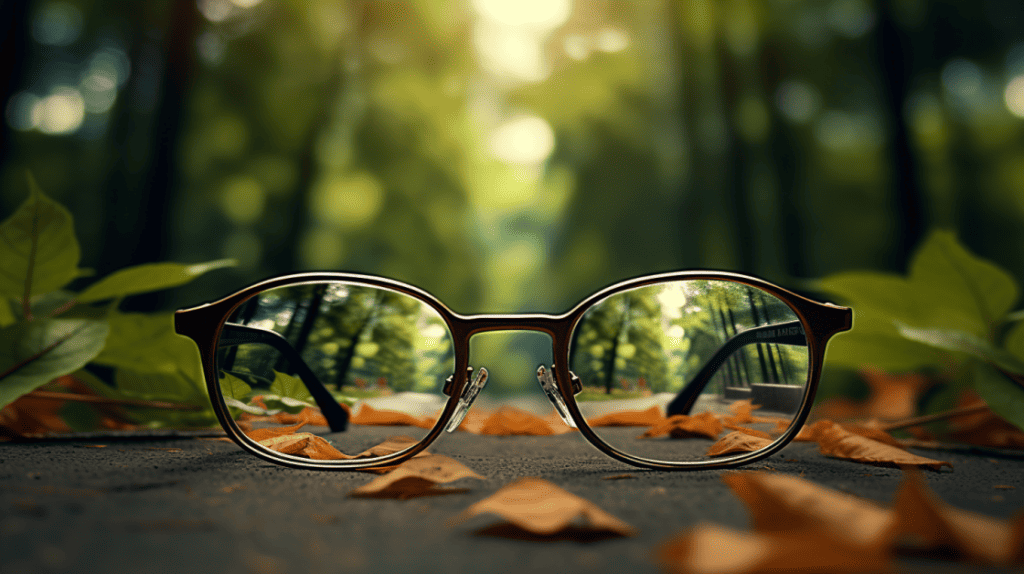
When it comes to choosing the right lenses for your glasses, you have several options to consider. The type of lens material you choose can affect the weight, thickness, and durability of your glasses. Here are some of the most common lens materials to help you make an informed decision.
Glass Lenses

Glass lenses were once a popular choice for glasses due to their excellent optics. However, they are now less commonly used due to their weight and breakability. Glass lenses are also more expensive than other lens materials.
Plastic Lenses

Plastic lenses are a popular choice for glasses due to their comfort, durability, and impact resistance. They are also lightweight and affordable. The most common plastic lens material is CR-39, which is best suited for mild or minimal prescriptions.
Polycarbonate Lenses

Polycarbonate lenses are a type of plastic lens that is known for its impact resistance and durability. They are a popular choice for children’s glasses, sports glasses, and safety glasses. Polycarbonate lenses are also thinner and lighter than CR-39 lenses.
Trivex Lenses

Trivex lenses are a newer type of lens material that is similar to polycarbonate. They are also impact-resistant and lightweight, but they offer better optics than polycarbonate lenses. Trivex lenses are a good choice for people with stronger prescriptions or who want the best possible optics.
High-Index Plastic Lenses

High-index plastic lenses are a type of lens material that is designed to be thinner and lighter than other plastic lenses. They are a good choice for people with stronger prescriptions who want thinner and more comfortable glasses. High-index plastic lenses are also more expensive than other lens materials.
Overall, the type of lens material you choose will depend on your prescription, lifestyle, and budget. It’s important to talk to your optician to determine the best option for your needs.
Lens Treatments and Coatings

When it comes to choosing the best glasses lens brand, it’s important to consider the treatments and coatings available. These can enhance the durability, performance, and appearance of your lenses, helping you see better and feel more comfortable wearing your glasses.
One of the most popular lens treatments is anti-reflective coating. This microscopically thin multi-layer coating eliminates reflections from the front and back surface of eyeglass lenses, making your lenses nearly invisible so people can focus on your eyes. This is especially helpful for people who spend a lot of time in front of a computer or under bright lights.
Another important treatment is anti-scratch coating. This is highly recommended for all lightweight and softer plastic lenses, as it helps to protect your lenses from scratches and other damage. It’s a must-have if you’re rough on your glasses or use them in a work environment.
Tinting is another popular option, especially for sunglasses. This treatment can help to reduce glare and improve contrast, making it easier to see in bright sunlight. You can choose from a range of tints, from light to dark, depending on your preferences.
UV-blocking treatment is also important, as it helps to protect your eyes from harmful UV rays. This is especially important if you spend a lot of time outdoors or in bright sunlight.
Photochromic treatment is another option to consider. This treatment causes your lenses to darken automatically in response to UV light, making them ideal for people who frequently transition between indoor and outdoor environments.
Other treatments and coatings to consider include anti-fog and anti-smudge coatings, which can help to keep your lenses clear and easy to see through. Crizal Prevencia is another popular coating that helps to protect your eyes from blue light emitted by digital devices.
Overall, when choosing the best glasses lens brand, it’s important to consider the treatments and coatings that are available. By selecting the right treatments for your needs, you can enhance the performance and durability of your lenses, and ensure that you see clearly and comfortably.
Lens Designs and Vision Correction

When it comes to selecting the right lenses for your glasses, it’s important to consider lens designs that can correct your vision.
Here are some of the most common lens designs and how they can help you see better:
Single Vision Lenses
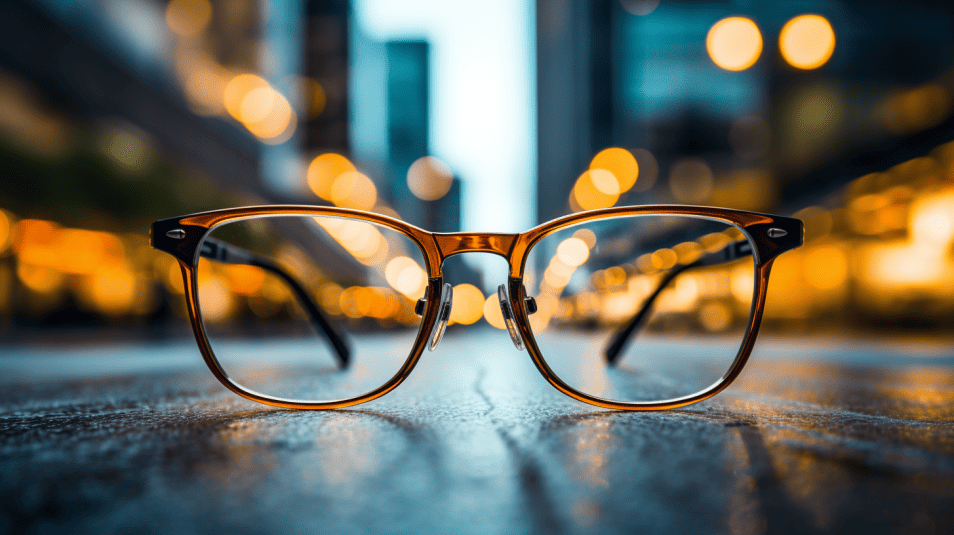
Single vision lenses are the most commonly used lenses to correct your vision. They are tailored to match your prescription and correct eye conditions such as myopia (nearsightedness), hyperopia (farsightedness) and astigmatism. They have a single prescription power throughout the lens and are ideal for people who need glasses for one specific task, such as reading or driving.
Bifocal Lenses

Bifocal lenses are designed for people who need two different prescriptions in one lens. They have a visible line that separates the two prescriptions, with the top part of the lens for distance vision and the bottom part for near vision. Bifocals are ideal for people who have presbyopia, a condition that affects people as they age, which makes it difficult to see things up close.
Varilux/Progressive Lenses

Varilux or progressive lenses are similar to bifocals, but they don’t have a visible line. Instead, they gradually change from the distance prescription at the top of the lens to the near prescription at the bottom. This makes them a great option for people who need glasses for both distance and near vision, but don’t want the visible line that bifocals have.
Aspheric Lenses
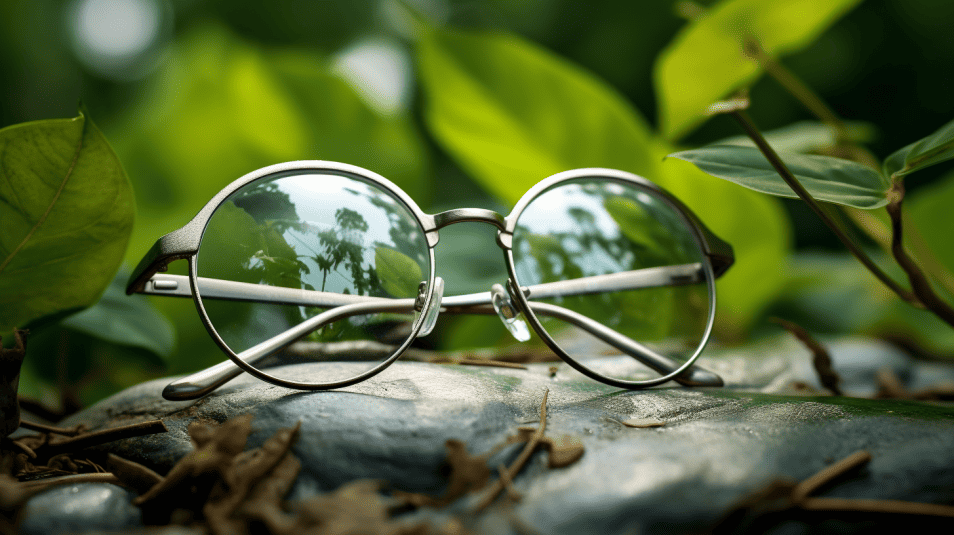
Aspheric lenses are designed to be flatter and thinner than traditional lenses. They provide a wider field of vision and reduce distortion, making them a great choice for people with higher prescriptions. Aspheric lenses can also help reduce the appearance of magnification or minification of the eyes.
High-Index Lenses

High-index lenses are made from a material that is denser than traditional plastic lenses, allowing them to be thinner and lighter. They are a great option for people with higher prescriptions who want glasses that are more comfortable and aesthetically pleasing.
Prescription Lenses

Prescription lenses are tailored to your specific prescription, ensuring that you get the best possible vision correction. They are available in a variety of lens designs, including single vision, bifocal, and progressive lenses.
Computer Glasses
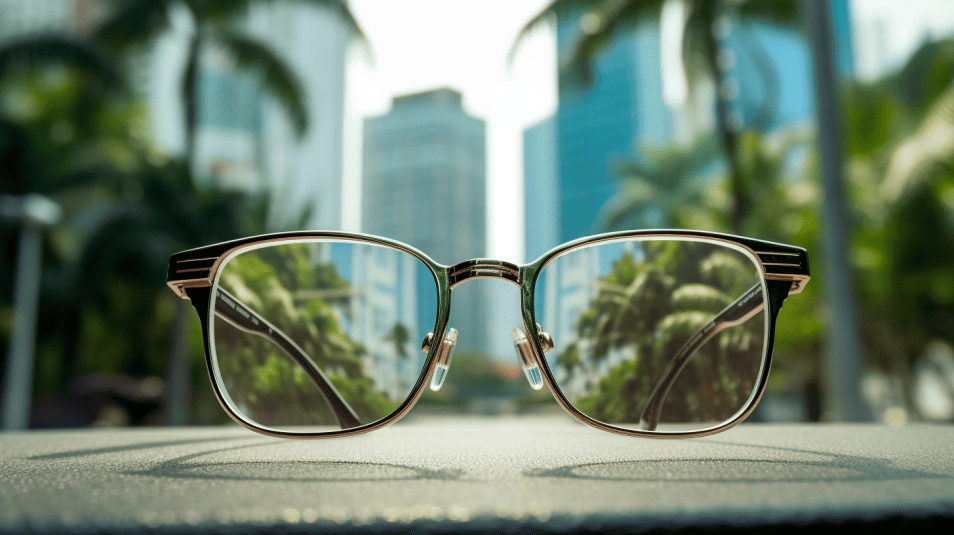
Computer glasses are designed to reduce eye strain and fatigue caused by prolonged computer use. They have a special lens coating that blocks blue light, which can disrupt sleep patterns and cause eye strain.
Photochromic/Adaptive Lenses
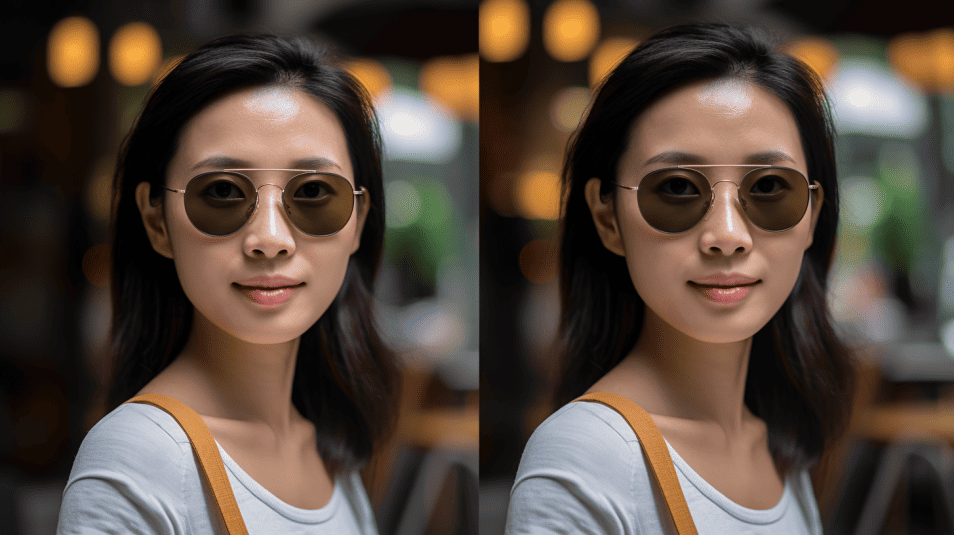
Photochromic or adaptive lenses are designed to darken in bright light and lighten in dim light, providing optimal vision in all lighting conditions. They are a great option for people who spend a lot of time outdoors or who frequently transition between indoor and outdoor environments.
In conclusion, selecting the right lenses for your glasses is important to ensure that you have optimal vision and comfort. Consider your specific vision needs and lifestyle when choosing a lens design, and consult with your optometrist to find the best option for you.
Understanding Frames
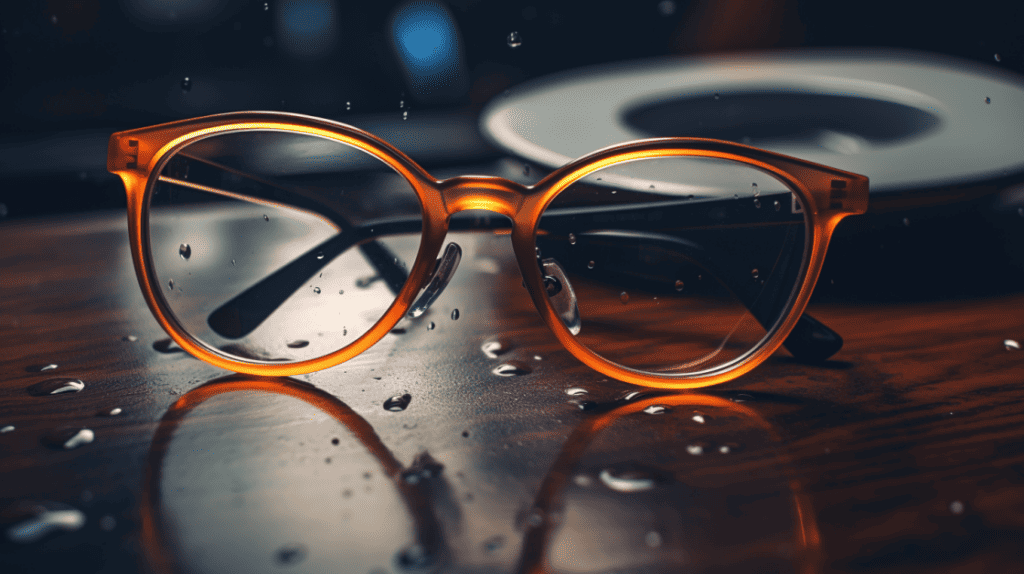
When it comes to choosing the perfect eyeglasses, the frames are just as important as the lenses. Frames not only hold the lenses in place, but they also determine the style and comfort of your glasses.
In this section, we will cover the different types of frames available and what to consider when choosing the right frame for you.
Types of Frames
There are three main types of frames: full-rimmed, semi-rimless, and rimless.
- Full-rimmed frames: These frames have a complete border around the lenses and are the most common type of frame. They provide the most support for the lenses and come in a variety of materials, including plastic, metal, and titanium.
- Semi-rimless frames: These frames have a border around the top half of the lenses and are rimless on the bottom half. They offer a more minimalist look while still providing support for the lenses.
- Rimless frames: These frames have no border around the lenses and are the most lightweight and minimalist option. They are held in place by small screws or nylon cords and are perfect for those who want a barely-there look.
Choosing the Right Frame
When choosing a frame, consider the following factors:
- Face shape: Different frame shapes complement different face shapes. For example, round frames look best on square faces, while square frames look best on round faces.
- Comfort: Make sure the frame fits comfortably on your face and doesn’t slide down your nose or pinch your temples.
- Lifestyle: If you lead an active lifestyle, consider a sturdier frame that can withstand wear and tear.
- Style: Choose a frame that fits your personal style and complements your wardrobe.
- Material: Frames come in a variety of materials, each with their own benefits and drawbacks. For example, plastic frames are lightweight and come in a wide range of colours, while metal frames are more durable.
Overall, the right frame for you will depend on your personal preferences and needs. Take the time to try on different frames and consider all of the factors before making a decision.
Popular Lens Brands
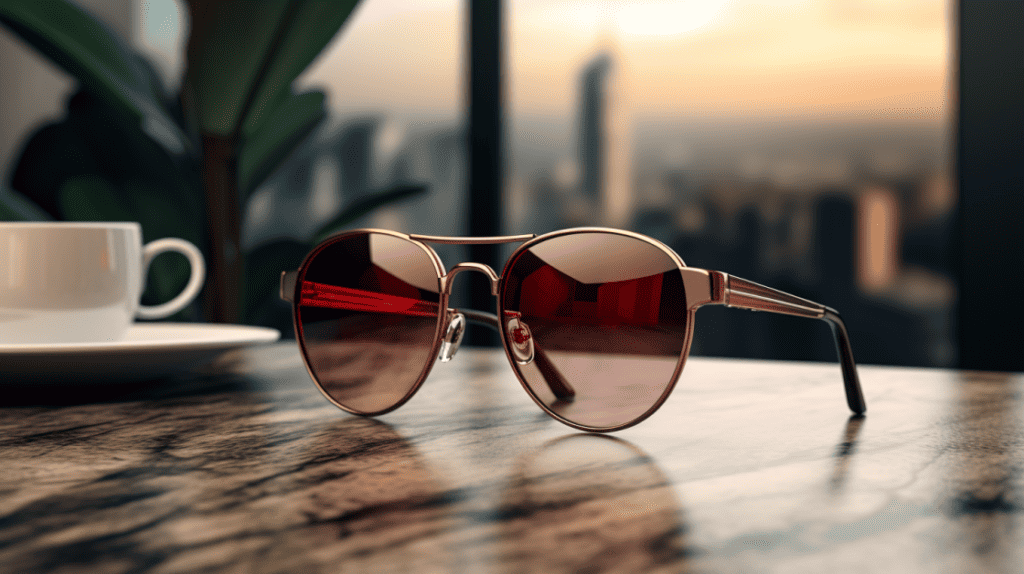
When it comes to selecting the best glasses lenses, the brand you choose can make a significant impact on the quality, style, and price of your glasses.
Here are some of the most popular lens brands to consider:
Warby Parker
Warby Parker is a popular eyewear brand that offers high-quality lenses at an affordable price. Their lenses are made from polycarbonate, a durable material that is resistant to scratches and impact. Warby Parker also offers a range of lens options, including single-vision, progressive, and blue-light filtering lenses.
Ray-Ban
Ray-Ban is a well-known brand that offers a wide range of lens options, including polarized lenses that reduce glare and improve clarity. Their lenses are made from high-quality materials and are available in a variety of colours and tints. Ray-Ban also offers prescription lenses that can be customized to your specific needs.
Oliver Peoples
Oliver Peoples is a luxury eyewear brand that offers high-quality lenses made from premium materials. Their lenses are available in a range of colours and tints, and can be customized to your specific prescription. Oliver Peoples also offers polarized lenses that reduce glare and improve clarity.
Crizal
Crizal is a popular lens brand that offers a range of lens coatings that improve the durability, clarity, and performance of your glasses. Their coatings include anti-reflective, scratch-resistant, and UV protection coatings. Crizal lenses are available in a range of materials, including polycarbonate and high-index.
Transitions
Transitions lenses are a popular choice for people who want glasses that can adapt to changing light conditions. These lenses are designed to darken in bright light and lighten in low light, providing optimal vision in any environment. Transitions lenses are available in a range of materials and can be customized to your specific prescription.
In conclusion, selecting the right lens brand is an important decision that can impact the quality, style, and price of your glasses. Consider the options above and choose the brand that best meets your needs and preferences.
Additional Lens Features
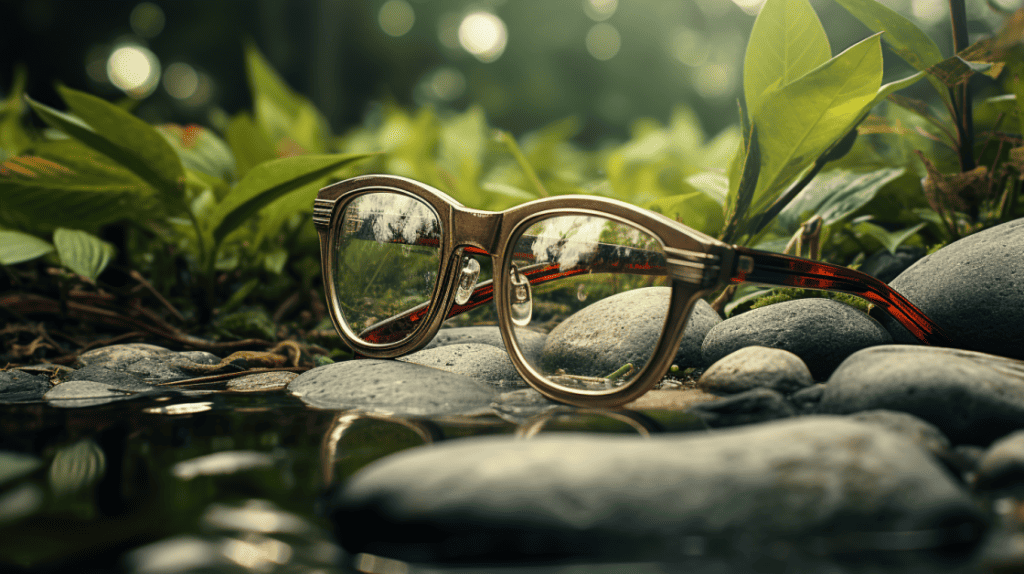
In addition to the type of lenses you choose, there are several additional features you may want to consider when selecting the best glasses lens brand for you. These features can enhance the comfort, safety, and functionality of your glasses.
UV Protection
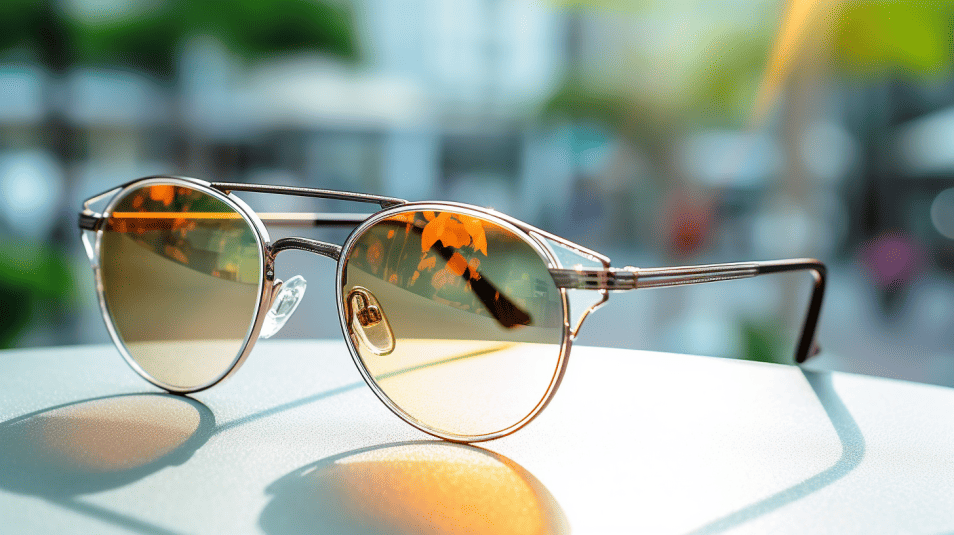
UV rays from the sun can damage your eyes over time, potentially leading to cataracts, macular degeneration, and other eye conditions. Look for glasses lenses that offer UV protection to shield your eyes from harmful rays.
Blue Light Filtering
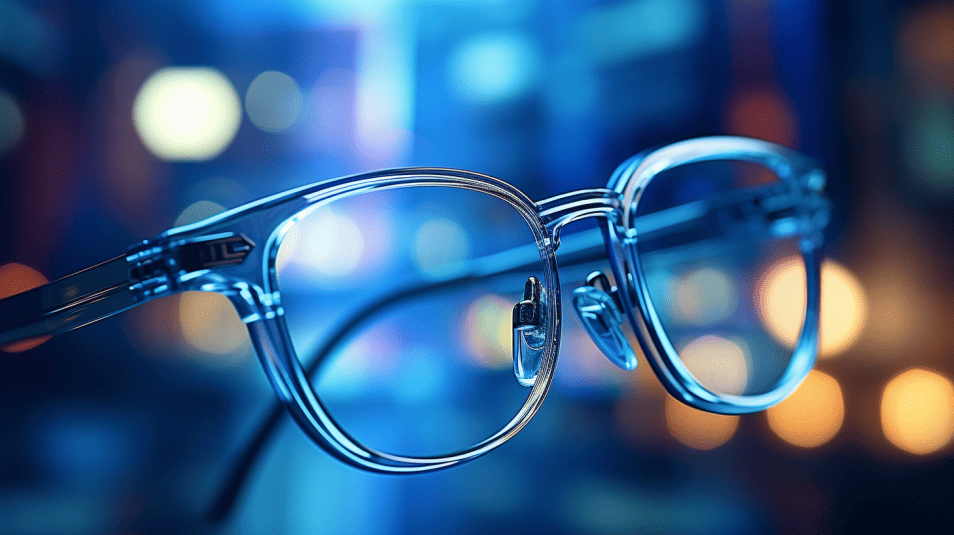
If you spend a lot of time in front of screens, you may want to consider glasses lenses that filter out blue-violet light. This type of light can cause eye strain, headaches, and disrupted sleep patterns. Blue light filtering lenses can help reduce these effects.
Impact Resistance

If you work in a hazardous environment or participate in sports, you may want to choose glasses lenses that are impact-resistant. These lenses are designed to withstand impact and are less likely to shatter or break upon impact.
Lens Designs
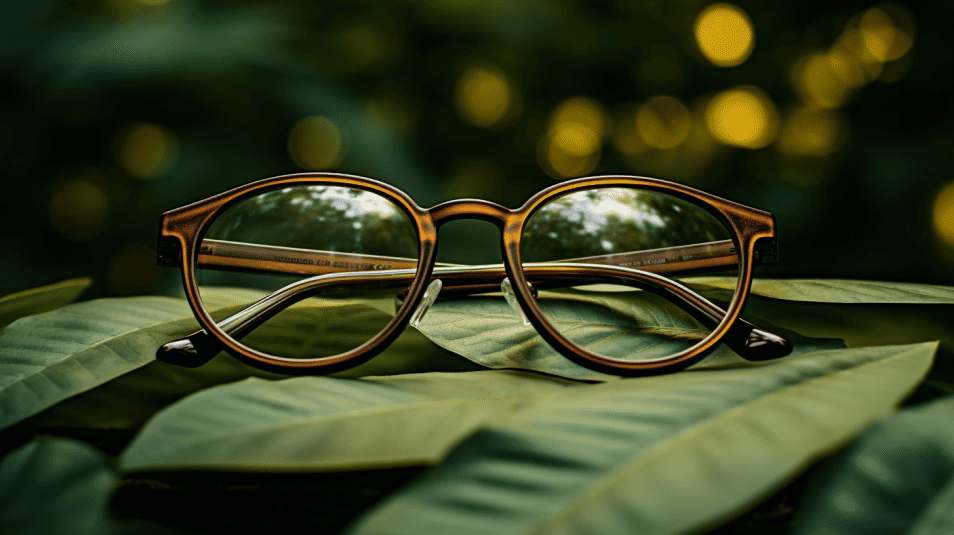
Different lens designs can offer unique benefits. For example, progressive lenses provide a seamless transition between distance, intermediate, and near vision, while single vision lenses are best for those who only need correction for one distance. Discuss your needs with your optometrist to determine which lens design is best for you.
Unique Features

Some glasses lens brands offer unique features, such as photochromic lenses that automatically adjust to changing light conditions or polarized lenses that reduce glare. Consider your lifestyle and needs when choosing glasses lens features.
Readers

If you only need glasses for reading, consider purchasing readers. These glasses have lenses that are specifically designed for close-up reading and are available without a prescription.
Frequently Asked Questions
What are the best brands for eyeglass lenses?
There are many great brands for eyeglass lenses, but some of the most popular and trusted brands include Essilor, Zeiss, and Hoya. These companies have a long history of producing high-quality lenses that provide excellent vision and comfort.
Which companies produce the highest quality lenses for glasses?
Essilor and Zeiss are often considered to be the top companies for producing the highest quality lenses for glasses. Both of these brands offer a wide range of lens options that are designed to meet the needs of different people and lifestyles.
What are the top progressive lens brands?
Progressive lenses are a popular choice for people who need correction for both near and far vision. Some of the top progressive lens brands include Varilux, Hoya, and Zeiss. These brands offer a range of options that are designed to provide clear and comfortable vision at all distances.
What are the best lenses for computer glasses?
If you spend a lot of time in front of a computer, you may want to consider lenses that are specifically designed for computer use. Some of the best options include blue light blocking lenses, which can help reduce eye strain and fatigue. Brands like Essilor and Zeiss offer a range of blue light blocking lenses that are designed to provide clear and comfortable vision while working on a computer.
What are the different types of optical lenses for glasses?
There are several different types of optical lenses for glasses, including single vision lenses, bifocal lenses, and progressive lenses. Single vision lenses are designed to correct vision at one distance, while bifocal lenses provide correction for both near and far vision. Progressive lenses offer a gradual transition between different distances.
Which is better, Crizal or Zeiss lenses?
Both Crizal and Zeiss lenses are excellent options for eyeglass lenses. Crizal lenses are known for their anti-reflective properties, while Zeiss lenses are known for their high-quality optics. Ultimately, the best option for you will depend on your individual needs and preferences.




